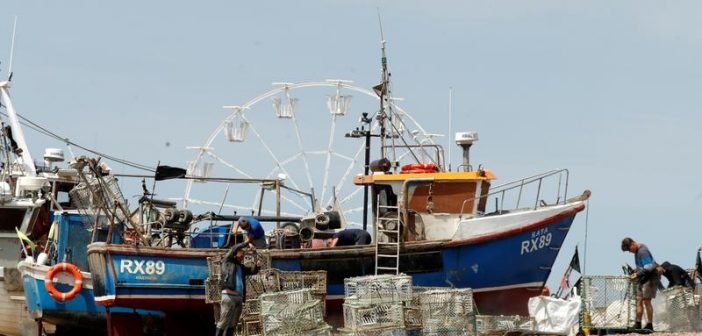Britain offered tentative concessions on fisheries in trade talks with the European Union last week, two diplomatic sources told Reuters, just as London was publicly threatening to breach the terms of its divorce deal with the bloc.
The sources, who did not attend last week’s talks between the sides’ chief negotiators but were briefed on them by the EU negotiating team, described the offer as a possible bid by London to overcome a key obstacle to a new trade deal from 2021.
They said it also suggested London might still be open to clinching an agreement despite a crisis in Brexit talks over Britain’s Internal Market bill which, if passed by parliament as proposed, would breach Britain’s international legal obligations as well as the EU divorce treaty.
Britain formally left the EU in January but the two sides are seeking a new trade deal before a status-quo transition arrangement ends in December.
The talks have all but stalled over disagreements on fishing rights, state aid rules and other guarantees of fair market competition, and ways to solve future disputes.
But the two EU sources said London had floated two ideas on fisheries which were a departure from Britain’s position so far that it must take control of its territorial waters in the Channel from next year.
“The UK definitely seems to be coming around on this, they seem to be moving cautiously towards some opening on fisheries in the technical talks,” said one of the sources.
The second source reported a “tentative, modest” move on fisheries after Britain this summer pushed a more rigid line, which the EU has rejected.
Asked to comment, a British government spokesperson did not address the main point directly but said: “Our position on fish is reasonable and straightforward.”
“We want a simple, separate fisheries framework agreement which reflects our rights under international law and which provides for annual negotiations over access and sharing opportunities based on the scientific principle of zonal attachment.”
“This is a fairer, more modern and scientific approach that is already the basis for the EU’s existing fisheries agreement with Norway and respects each party as an independent coastal state,” the spokesperson said.

